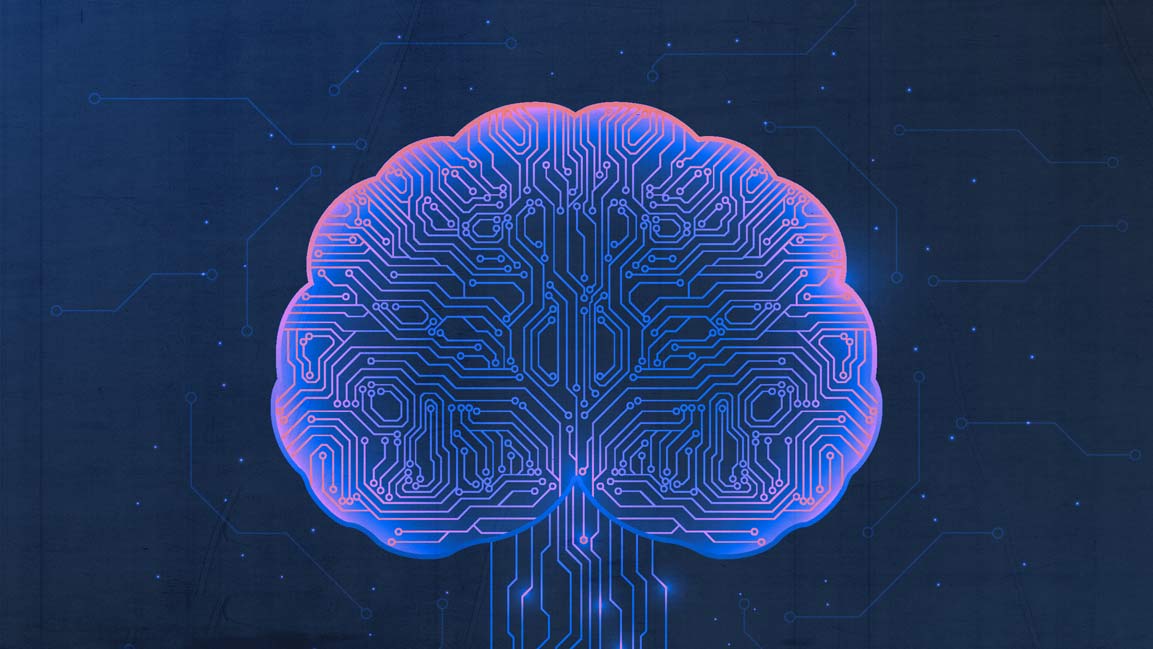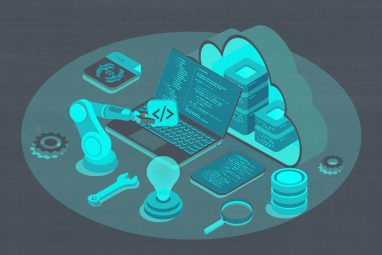Agentic AI in Action: How Enterprises Automate and Scale Critical Operations
The AI Research Forum (AIRF), curated for the region by MIT Sloan Management Review Middle East, offers rare clarity on the future of intelligent agents.
News
- What Is Moltbook? A New Social Network Built for AI Agents
- OpenAI May Secure $50B From Amazon in Ongoing Talks
- Apple Acquires Israeli Stealth AI Firm Q.ai
- Tesla channels $2B into AI as EV era narrows
- Dubai Media Enters Streaming Space With Dubai+, a Local-First OTT Platform
- MBZUAI Unveils K2 Think V2, Advancing the UAE’s Push for Fully Sovereign AI

[Image source: Chetan Jha/MITSMR Middle East]
In April, when Amazon rolled out a new feature which let US customers shop products from other brand websites without leaving its own platform, it marked a significant showcase of agentic AI at work. An invisible artificial intelligence (AI) agent was at play, finding the product, filling in shipping and payment details securely, completing the purchase on the external site, and managing order confirmation and tracking—all within a unified app experience.
AI agents are specific applications or individual programs designed to perform particular tasks based on pre-programmed rules or learned patterns, operating within defined scopes, focusing on short-term, repetitive, or structured tasks.
Sam Altman, CEO of OpenAI, recently shared that while 2025 saw the arrival of agents capable of cognitive work, “2026 will likely see the arrival of systems that can figure out novel insights. 2027 may see the arrival of robots that can do tasks in the real world.”
It’s safe to say that agentic AI is the next frontier in the race toward artificial general intelligence (AGI), autonomous decision-making, and intelligent automation that transforms how businesses operate and compete.
Seizing the Opportunity
Big-tech companies such as Nvidia, Microsoft, Amazon, and Google, along with well-funded startups like OpenAI and Anthropic, are all racing to develop AI agents. Accounting firm EY found that 48 percent of 500 tech industry executives in the US have already deployed AI agents within their companies.
Recently, HubSpot launched 15 new AI agents along with an agent marketplace, Adobe introduced six AI agents and an “agent composer” that enables companies to manage them, Unily rolled out an “Agent Orchestrator” for overseeing AI agents, and SK Telecom in Korea announced a collaboration to develop AI agents.
The global AI agents market size was estimated at USD 5.40 billion in 2024 and is expected to reach USD 50.31 billion by 2030, growing at a CAGR of 45.8% from 2025 to 2030. In this backdrop, Grand View Research notes that increased demand for automation, advancements in natural language processing (NLP), and rising demand for personalized customer experience are primarily driving the growth of the AI agents.
Forums and platforms, such as the AI Research Forum (AIRF), specially curated for the region and hosted by MIT Sloan Management Review Middle East, provides a much-needed lens of clarity on the future of such agents.
Scenarios for Application
Enterprises are viewing agentic AI as a 24/7 digital workforce that can be scaled up or down as per requirements. “A lot of people are chasing use cases, but the larger or a better question to focus on, especially given the promise of agents and agentic AI, is to think about processes and problem statements,” says Hari Balaji, Partner, Technology Consulting, Generative AI, EY.
For Ritu Jyoti, VP/GM of AI, Automation, Data, and Analytics Research, IDC, enterprises will move towards a “use-case” approach, where they will build a minimum viable product, realize ROI, learn fast, and then expand, as per Fast Company.
Let’s take a look at the possibilities of how and where AI agents can be incorporated.
1. IT Support and Service Management (ITSM)- In ITSM, AI agents are deployed to automate repetitive tasks like ticket triage, incident creation, status updates, and routine issue resolution. AI agents are able to lead to faster resolution times, fewer escalations, and reduced manual workload on IT teams, by analyzing incoming requests, prioritizing them, and autonomously solving common problems.
In a ManageEngine survey, 82% of respondents stated that their organization had already implemented AI features and capabilities within their ITSM practices. Notably, Process mining and workflow generation (50%), Script generation for process automation and customization (50%), and Drafting and documenting post-incident reviews (49%), were the top three use cases for AI agents in ITSM.
2. Cybersecurity– AI agents have enhanced cybersecurity operations by autonomously detecting and responding to threats in real-time. Such agents analyze network traffic and user behavior to identify anomalies, accelerating breach detection and incident response times. The development of AI-native protocols, such as MCP (model context protocol) and A2A (agent-to-agent communication), is the first step towards a future where security is autonomous, adaptive, and always-on.
Agentic AI detects security alerts before they reach human analysts, where they are able to automate the triage and investigation processes, imitating human SOC workflows and decision-making. The global average cost of a data breach has fallen to $4.4 million, a 9% decrease from last year, largely due to faster identification and containment of threats, while organizations that extensively leveraged AI in their security operations achieved average savings of $1.9 million compared to those that did not.
3. Customer Service Automation– Customer service is being enhanced by AI agents to provide 24/7 support and handle routine queries autonomously. By leveraging natural language understanding, enterprise knowledge bases, and automated actions like resolving common issues or processing requests, they reduce costs, boost customer satisfaction, and scale efficiently to handle high volumes of inquiries.
Salesforce data suggests that 85% of customer service representatives at organizations that use AI are able to save time.
4. Logistics and Supply Chain– Such industry agents are able to streamline supply chain management by predicting disruptions, optimizing inventory, and automating key workflows, reducing human intervention in tracking, planning, and execution phases, improving efficiency, and reducing costs.
In 2025, Amazon and Walmart together account for nearly 44% of US retail e-commerce sales, where the two players employ AI agents extensively across operations. Meanwhile, for Sree Mangalampalli, Vice President of Digital Transformation Solutions at supply chain AI company FourKites, fully autonomous and interconnected AI agents are still mostly theoretical in nature, but he notes that the technology is advancing rapidly.
5. Research and Development– Though less talked about, AI agents can accelerate R&D by automating data analysis, literature review, and experimental design processes. They assist researchers by processing large datasets, generating hypotheses, and optimizing workflows, thus shortening innovation cycles and boosting productivity.
As these systems mature, analysts agree that agentic AI is shaping the pathway to AGI. Enterprises are already treating agents not only as task automators but as decision-making collaborators that could eventually unlock novel insights and streamlined operations.
At the upcoming AI Research Forum in Dubai, experts including Dylan Hadfield-Menell and Tim Kraska of MIT, Anirudh Narayan of Lyzr, Srimanth Rudraraju of London Stock Exchange Group, and Geoffrey Alphonso of Alef Education will spotlight these advances, while debating ethical, technical, and governance challenges.
Agentic AI is advancing quickly—and the competition to harness it may well redefine the future of business processes globally.








